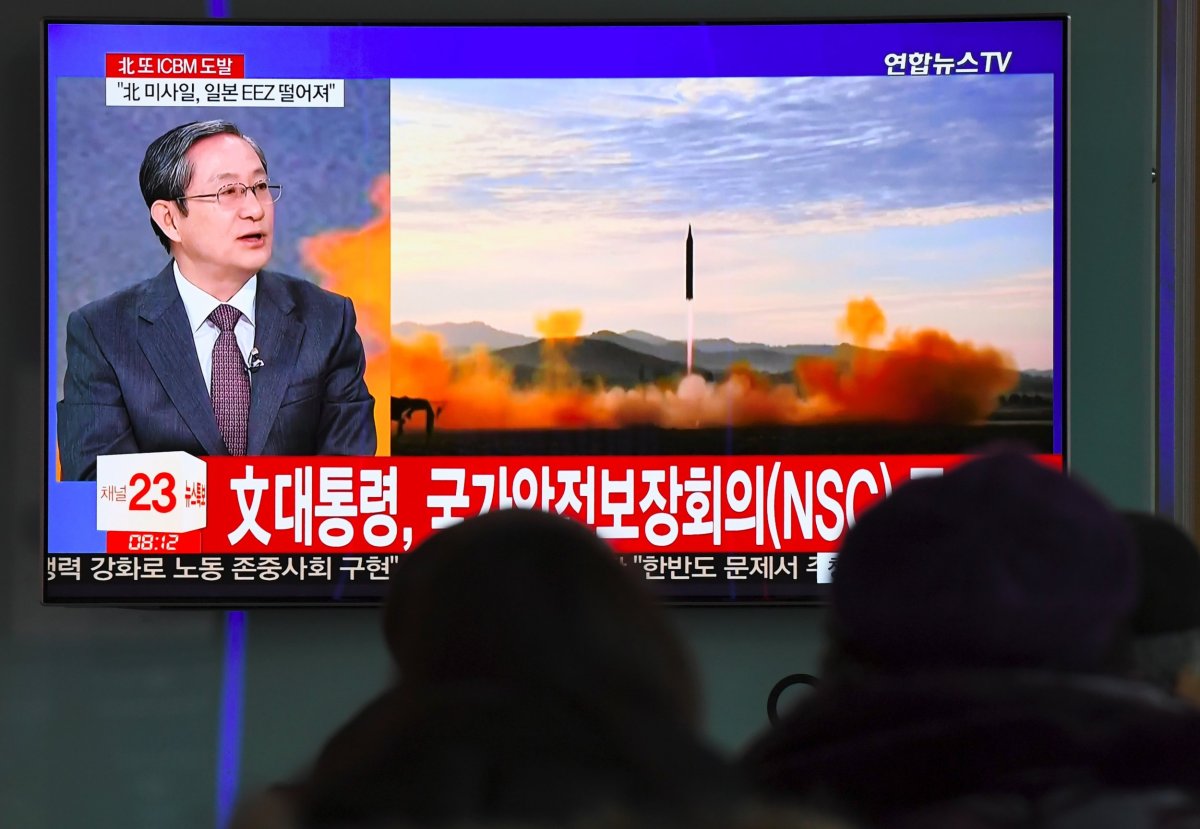New satellite images indicated that North Korea was continuing work on its ballistic missile program, despite President Donald Trump's assurances that the regime no longer posed a security threat.
At least 16 different bases were identified in the images, The New York Times reported, all of which were part of an existing network known to American intelligence services.
It would appear that North Korea's highly publicized promise to dismantle a major missile research center was in fact a cover for upgrades and continued work at other locations. The research aims to improve the North's missile arsenal, allowing it to carry larger warheads, whether conventional or nuclear, farther.
The ballistic missile sites were identified in a new study published Monday by the Beyond Parallel program at the Center for Strategic and International Studies think tank.
That flies in the face of Trump's assertions that he has neutralized the North Korea threat. The president may tout improved relations with Pyongyang as one of his greatest foreign policy achievements, but the U.S. has achieved nothing of substance in disarming or denuclearizing the secretive dictatorship.
Though no new nuclear or missile tests have taken place for almost a year, U.S. intelligence officials believe research in both areas is continuing. Meanwhile, Pyongyang's trade with China and Russia is helping it sidestep the worst effects of the sanctions Trump appears to believe will bring Kim Jong Un to the negotiating table.
The report included a map of North Korea indicating three belts of missile bases with varying ranges, from short-range to the longest-range missiles that could hit the continental U.S.

Those long-range weapons have caused the most concern, and though the North has yet to prove it can reliably mount a nuclear warhead on the missiles and successfully deliver the payload, the fine-tuning appeared to be underway.
Victor Cha, one of the authors of the report, was previously considered by the White House to fill the role of U.S. ambassador to South Korea, but fell out of favor after disagreeing with the Trump administration's approach toward the North.
Cha told the Times, "It's not like these bases have been frozen… Work is continuing. What everybody is worried about is that Trump is going to accept a bad deal—they give us a single test site and dismantle a few other things, and in return they get a peace agreement" to formally end the Korean War.
This would allow the president to "declare victory, say he got more than any other American president ever got, and the threat would still be there," said Cha.
The State Department told the Times the president believed that "should Chairman Kim follow through on his commitments, including complete denuclearization and the elimination of ballistic missile programs, a much brighter future lies ahead for North Korea and its people."
But for all Trump's boasts about his close relationship with Kim, North Korea has yet to take the first step toward the denuclearization "agreed" at the U.S.-North Korean summit in Singapore in June: offering up a list of nuclear sites, weapons, production facilities and missile bases.
The North said it would not send its chief negotiator to a planned meeting with Secretary of State Mike Pompeo in New York to discuss the next leaders summit.
Meanwhile, ballistic missile work continues apace. "It looks like they're trying to maximize their capabilities," said report co-author Joseph S. Bermudez Jr. "The level of effort that North Korea has invested in building these bases and dispersing them is impressive. It's very logical, from a survival point of view."
Uncommon Knowledge
Newsweek is committed to challenging conventional wisdom and finding connections in the search for common ground.
Newsweek is committed to challenging conventional wisdom and finding connections in the search for common ground.
About the writer
David Brennan is Newsweek's Diplomatic Correspondent covering world politics and conflicts from London with a focus on NATO, the European ... Read more
To read how Newsweek uses AI as a newsroom tool, Click here.








